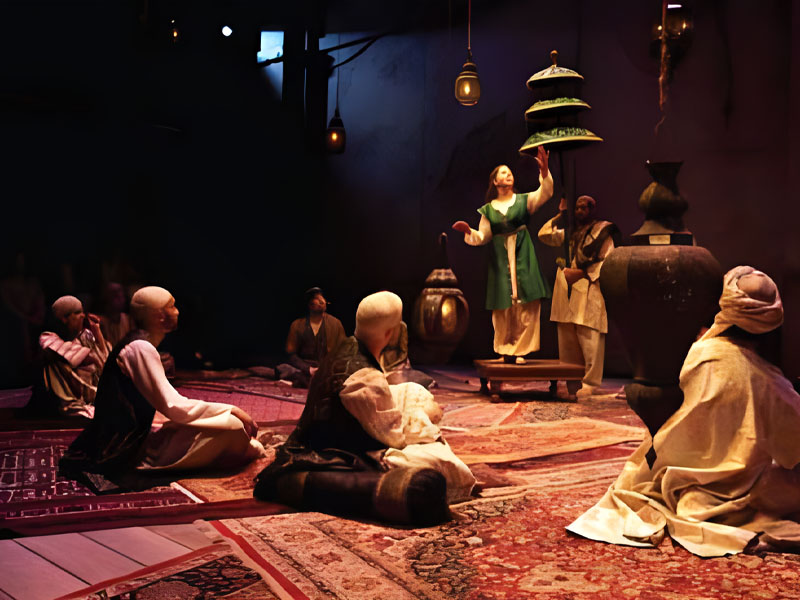Folklore in the theatre: A step towards dispelling illusions
Issue 15

Ibrahim Abdullah Ghulum (Bahrain)
This paper discusses heritage’s presence in theatrical discourse, whether in the script or in the performance. The writer asserts that the prevalent perception is that heritage is merely a technique that the playwright and the director occasionally exploit.
It is possible that many think of heritage as a series of events, characters, themes and other elements that may act as layers of masks that a playwright uses to avoid various forms of censorship. Thus, many interpret the tendency to use themes of heritage, history and mythology as indicators of the lack of freedom in Arab societies and of subjects considered taboo, such as the power structure, religion and traditions.
The author believes that the above-mentioned interpretation is not based on an understanding of drama or heritage, but on the idea that dramatic themes must conflict with social taboos. This idea sees theater as conflicting with the community, the power structure, laws and traditions. As a result, theater has become a tool for politics and ideology, which has garnered opposition from the cultural and official authorities. It is also used a tool by political opportunists, and has thus become less creative, replete with ideological discourse about heritage that references symbolic personalities and events.
For the past three decades, drama has been associated with the claim that heritage is vital to the creation of authentic Arab theater. The dilemma is that heritage has been referenced without rationale in Arab drama and, I think, many playwrights have done so in their new experimentalism due to the general trend to question authenticity in Arab culture.
In the theater, heritage is an essential part of the structure of the play, and a very important part of the discourse. Whatever form heritage takes in the play, whether contradicting, conflicting or running parallel to the structure of the play, heritage’s presence should be justified.
Heritage must be a coherent part of the script; it should not be forced into the script by external ideology-driven interpretations.







































































